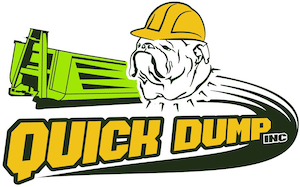What Is Not Allowed in Roll Off Dumpster?
Welcome to our blog post on what is not allowed in a roll off dumpster. If you’re considering renting a roll off dumpster for your upcoming project, it’s important to be aware of the items that cannot be disposed of in these containers. Proper waste management is essential, and understanding what is not allowed can help avoid any issues or potential fines. So, let’s dive right in and explore what items are not allowed in roll off dumpster.
List of Items Not Allowed in Roll Off Dumpster
Electronics
Electronics such as TVs, computers, and smartphones are not allowed in a roll off dumpster. This is because electronics contain hazardous materials that can harm the environment if not disposed of properly. To responsibly dispose of electronics, consider recycling them at designated electronic waste recycling centers or donating them for reuse. Let’s keep our dumpster contents safe and eco-friendly!
Automotive Fluids: Fuel, Oil, Gas, Lubricants
Automotive fluids are not allowed in a roll off dumpster. This includes substances like motor oil, antifreeze, transmission fluid, and brake fluid. These fluids are considered hazardous waste and need to be disposed of properly to avoid environmental contamination. It’s important to find designated collection sites or recycling centers to safely dispose of automotive fluids.
Fertilizer & Pesticides
You cannot throw away fertilizer and pesticides in a roll off dumpster. These substances can be hazardous to the environment and can contaminate water sources if not disposed of properly. It is important to find alternative ways to dispose of these materials to ensure the safety and well-being of our surroundings.
Tires
Tires are not allowed in a roll off dumpster. This is because tires cannot be disposed of in regular waste facilities due to their potential to cause environmental harm. Instead, tires need to be taken to specialized recycling centers that can properly handle and process them. So, when using a roll off dumpster, it’s important to remember not to include tires in your waste to ensure proper disposal and environmental responsibility.
Batteries
Batteries are not allowed in a roll-off dumpster. This is because batteries contain hazardous materials that can be harmful to the environment if not disposed of properly. When batteries are thrown in a dumpster, they can end up in landfills where their chemicals can leak and contaminate soil and groundwater. To ensure the safety of the environment and comply with regulations, it is important to dispose of batteries at designated recycling centers or follow proper disposal methods provided by local authorities.
Paints
Paints are not allowed in a roll off dumpster. This is because paints contain hazardous materials that can harm the environment and pose a risk to human health. It is important to dispose of paints properly by taking them to a local hazardous waste facility. By doing so, we can ensure the safety of our surroundings and contribute to a cleaner, healthier environment for everyone.
Radioactive Materials
Radioactive materials are not allowed in a roll off dumpster. They pose serious risks to both human health and the environment. It is important to dispose of radioactive waste properly and in accordance with specific regulations to ensure safety for everyone.
Asbestos
Asbestos is not allowed in a roll off dumpster. This is because asbestos is a hazardous material that poses serious health risks. When asbestos-containing materials are disturbed, they release tiny fibers into the air that can be inhaled. These fibers can cause severe respiratory issues, including lung cancer and mesothelioma. Due to these health hazards, it is crucial to handle asbestos with extreme caution and dispose of it properly. Instead of putting asbestos in a roll off dumpster, it is recommended to contact a specialized asbestos removal service to handle the safe disposal of this dangerous material.
Fluorescent Tubes
Fluorescent tubes are not allowed in roll off dumpsters. These tubes contain mercury, a hazardous material that can harm the environment if not disposed of properly. To ensure the safety of both humans and the ecosystem, it is important to handle fluorescent tubes with care. Instead of throwing them in a roll off dumpster, it is recommended to take them to designated drop-off locations or recycling centers where they can be recycled or safely disposed of. By following these guidelines, we can protect our environment and prevent any potential harm caused by improper disposal of fluorescent tubes.
